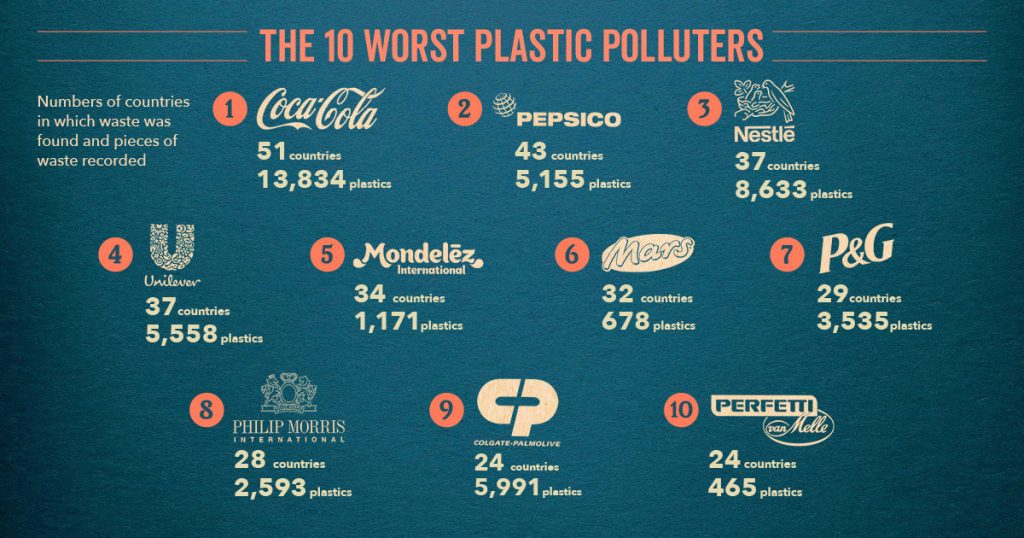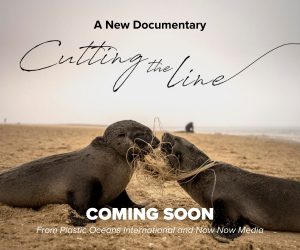Don’t We All Have To Take Responsibility?
A couple weeks ago Break Free From Plastic put out their report Branded Vol. III: Demanding Corporate Accountability for Plastic Pollution, which made headlines for identifying the 10 worst plastic polluters in the world. Here’s the list:
My first reaction is anger and blame – these companies are destroying the planet and It is their fault our environment is suffering from plastic pollution. But taking a step back, I have to ask …
Is it really only their fault?
What about the other 90 companies that follow these “Top 10 Plastic Polluters?” If the top 10 were to disappear, the next 10 companies would simply take their place because they are part of an economic system we all helped create and continue to support.
Don’t get me wrong, I believe ethically big corporations need to take responsibility for the direct and indirect consequences of their actions. I don’t think these corporations are directly dumping plastic into our environment. However, I do think they are knowingly using a material that is harmful to it.
What I’d like is for them to recognize that their actions impact all of us … and everywhere. And I want their decisions to be made in a way that protects our local communities and environments.
IF YOU’RE ENJOYING THIS ARTICLE, PLEASE CONSIDER A DONATION TO SUPPORT NEW CONTENT
At the same time, I question our repetitive strategy to shame a select few without also recognizing the larger context in which our actions impact. How effective is the strategy to shame or appeal to emotions? Will this alone create the systemic change in our global society that is critically needed now to protect our local communities and environment?
Plastic pollution is a systemic problem which means we all contribute to creating the problem. We are all a part of the same global community that has made and supported this global economic system. Producers who knowingly sell products that harm our health and environment is a problem. Consumers who knowingly buy products that are harmful is a problem. Governments who knowingly support products that their local communities cannot waste manage is a problem.
How we solve it will require all of us to take responsibility for our actions. So who is to blame? All of us. We cannot solve the problem by blaming each other, but rather by working together.
I don’t think we create the systemic change that is needed by shaming corporations to take full responsibility for a problem we all have a played a part in. Shaming them only creates division. Shaming creates a bigger problem like greenwashing where corporations quickly allocate funds away from developing better products and into marketing to protect their brand.
It reminds me of when my young son quickly tries to cover up a mistake to avoid getting in trouble rather than taking the time to recognize how he made the mistake and how to prevent it from happening again.
We cannot afford to have these multi billion dollar companies continue to cover up mistakes. Likewise, we cannot afford to have individuals claim ignorance to their responsibility. Instead, we must all be accountable and work together to fix a much deeper problem that we have all created.
Julie Andersen is the Chief Executive Officer of Plastic Oceans International. Her career has focused on communicating new means to improve and safeguard human health and the environment from the negative effects of industrial development. She has worked in public health and nonprofit management internationally for the past 15 years.



Trackback: diyala SERCH
Trackback: tow truck